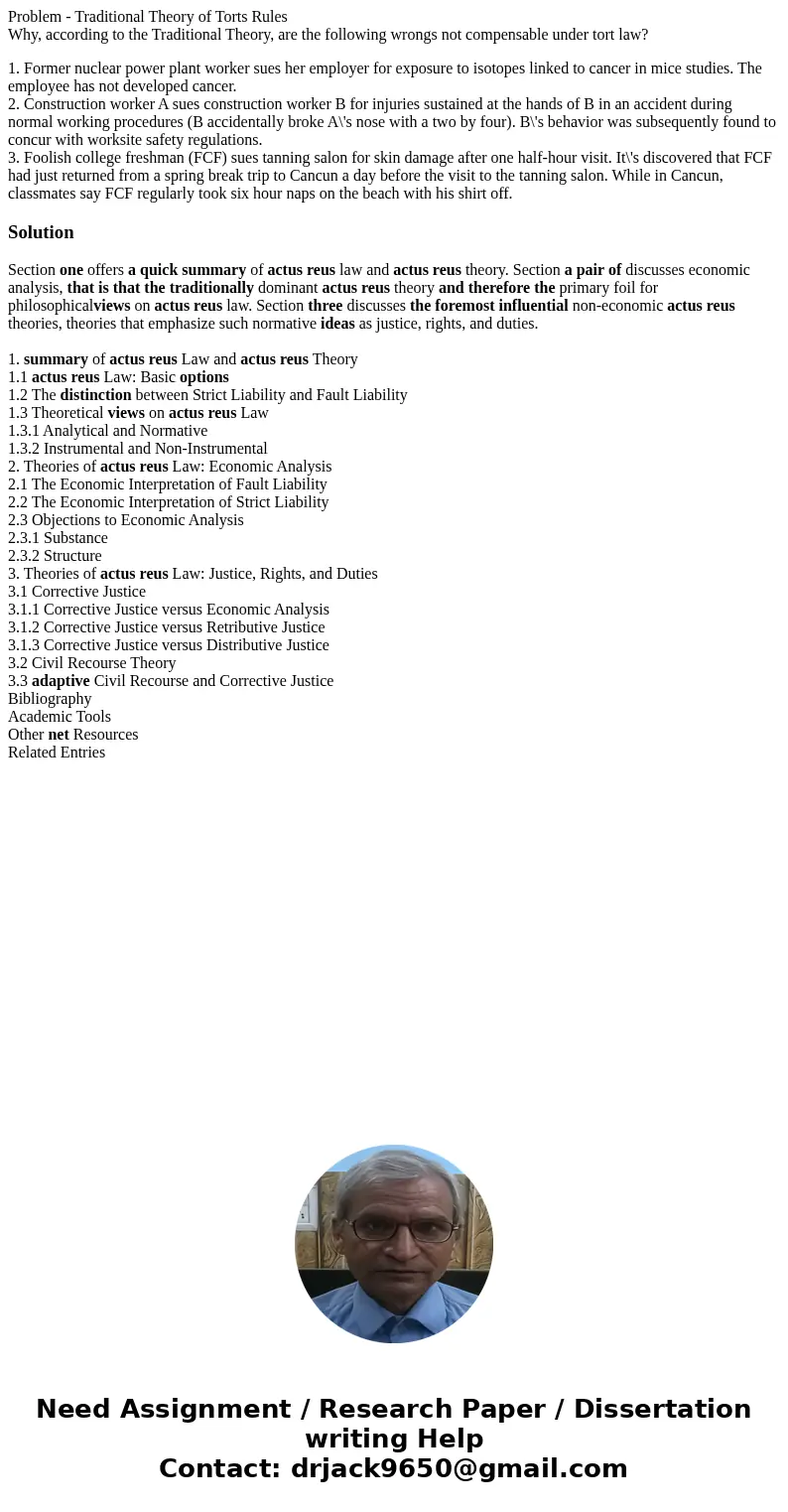Problem Traditional Theory of Torts Rules Why according to
Problem - Traditional Theory of Torts Rules
Why, according to the Traditional Theory, are the following wrongs not compensable under tort law?
1. Former nuclear power plant worker sues her employer for exposure to isotopes linked to cancer in mice studies. The employee has not developed cancer.
2. Construction worker A sues construction worker B for injuries sustained at the hands of B in an accident during normal working procedures (B accidentally broke A\'s nose with a two by four). B\'s behavior was subsequently found to concur with worksite safety regulations.
3. Foolish college freshman (FCF) sues tanning salon for skin damage after one half-hour visit. It\'s discovered that FCF had just returned from a spring break trip to Cancun a day before the visit to the tanning salon. While in Cancun, classmates say FCF regularly took six hour naps on the beach with his shirt off.
Solution
Section one offers a quick summary of actus reus law and actus reus theory. Section a pair of discusses economic analysis, that is that the traditionally dominant actus reus theory and therefore the primary foil for philosophicalviews on actus reus law. Section three discusses the foremost influential non-economic actus reus theories, theories that emphasize such normative ideas as justice, rights, and duties.
1. summary of actus reus Law and actus reus Theory
1.1 actus reus Law: Basic options
1.2 The distinction between Strict Liability and Fault Liability
1.3 Theoretical views on actus reus Law
1.3.1 Analytical and Normative
1.3.2 Instrumental and Non-Instrumental
2. Theories of actus reus Law: Economic Analysis
2.1 The Economic Interpretation of Fault Liability
2.2 The Economic Interpretation of Strict Liability
2.3 Objections to Economic Analysis
2.3.1 Substance
2.3.2 Structure
3. Theories of actus reus Law: Justice, Rights, and Duties
3.1 Corrective Justice
3.1.1 Corrective Justice versus Economic Analysis
3.1.2 Corrective Justice versus Retributive Justice
3.1.3 Corrective Justice versus Distributive Justice
3.2 Civil Recourse Theory
3.3 adaptive Civil Recourse and Corrective Justice
Bibliography
Academic Tools
Other net Resources
Related Entries

 Homework Sourse
Homework Sourse